When I Think Of Home
I’m from Charlottesville, Virginia. Not born there but certainly raised there from the age of 6 months until I moved just down the road to Richmond at the age of 33. So I know a little bit about the city. I was educated in her schools and in her streets. I understand the complexities of navigating her numerous communities: Black, White, Urban, Suburban, Rural and The Academy. In Charlottesville, I have experienced some of the greatest triumphs and tragedies of my life. Charlottesville good, bad and indifferent will always be home. Like many interested and concerned former residents, I have been closely following the debate over the removal of the statue of Robert E. Lee and Stonewall Jackson and the subsequent rallies in May, July and the all out domestic terrorism of August 12th. I think this would be a good place to provide some context that many a wiser person than I has pointed out that this flashpoint in American History is not about statues.
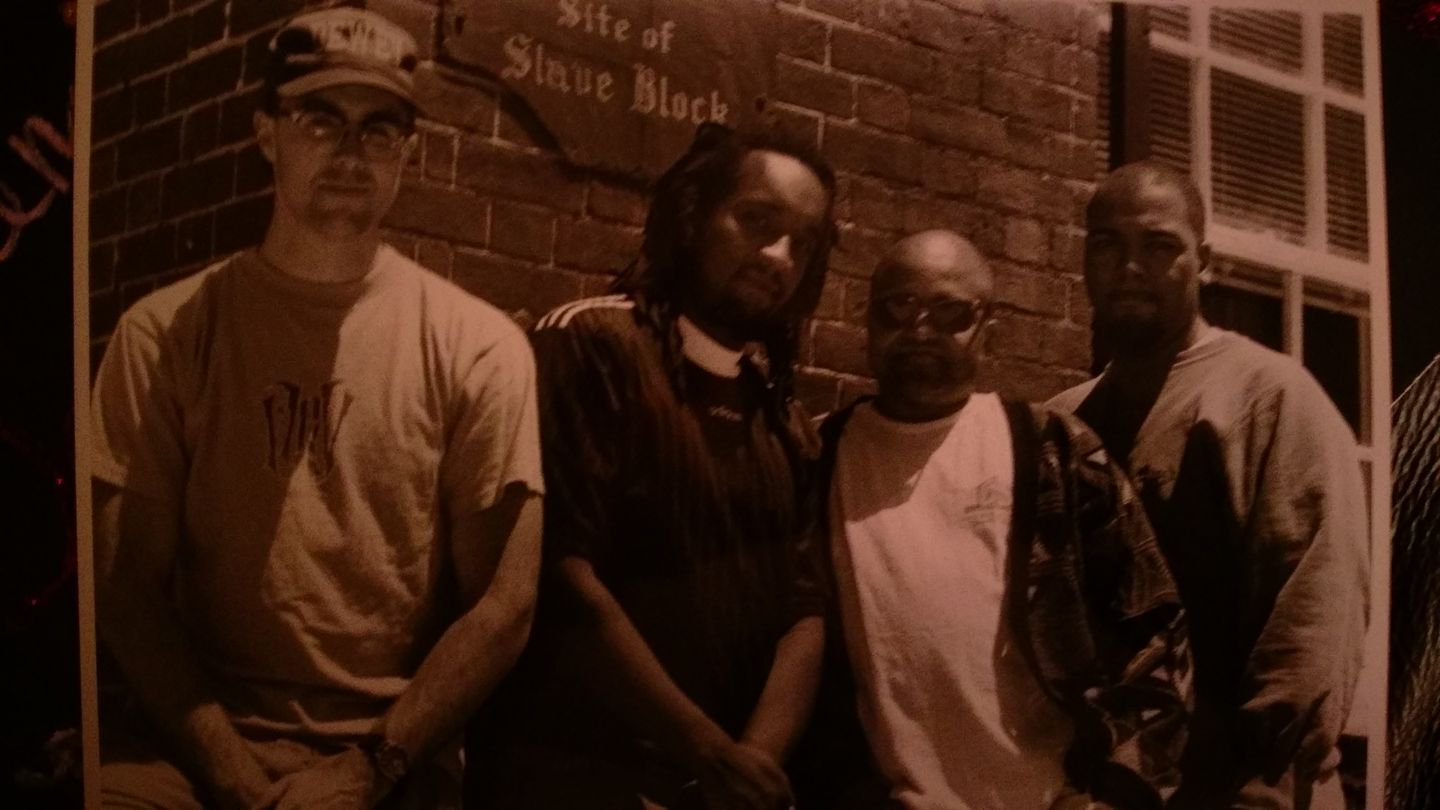
Back In The Day
The Charlottesville I knew was of the 70’s, 80’s and 90’s variety. I was raised in was one of the few areas where Black Families could buy land and build homes in the city in the early 1960’s. This decision of where to raise a family was not by choice but by law. My mother and father were not native to the area. Work brought them to Charlottesville. More specifically the fallout from Massive Resistance brought them to Charlottesville. My parents met in Farmville, VA and were in the employ of the Prince Edward County Public Schools. On the last day of school in 1959, my parents were informed that their contracts would not be renewed as it was decided to close the school system as to not be forced to integrate the schools. At this point, my parents had been married a little over two years. I cannot imagine how that would feel to lose your job over such a heinous ideology, but my parents were born into a world of the most overt of overt systematic racism – Jim Crow was their reality. I think what often gets lost in the conversation in today’s atmosphere is the reality that segregation was all-encompassing and that somehow a mere half-century later the slate has been cleared and we are all coming from a similar point of origin. No, that clean slate didn’t happen.
Jump Jim Crow
My parents like millions of other Black people who came of age in the middle of the 20th century and prior had limited life choices. Not only were their choices of career limited but the areas that they lived, worshipped, were educated and spent their hard earned money, for the most part, were determined by outside forces i.e. Local, State & Federal Government. My parents are a study in contrast – my father a rural upbringing is the South Carolina low country Ridgeland to be precise and my mother a more urban upbringing in Charlotte, NC. My mom saw urban renewal raze not only the Second Ward neighborhood where she was raised in Charlotte but also the Vinegar Hill neighborhood that she lived in when she and my father first moved to Charlottesville. A reality. My father who was older than my mother had seen this country in many similar but also a few different lights than my mom. My mother lived in a very large densely populated neighborhood in Charlotte, NC known as Brooklyn. So in some ways, there was some protection from the random violence of Jim Crow out of the safety in numbers but at the same time, that threat always loomed. My father, on the other hand, dealt with a more direct threat at any time because of the much closer proximity he and his family had to face because of their geographic location. Growing up I heard numerous stories that my father would tell me about how my grandfather, my father and his siblings and extended family faced threats of violence head on. One particular story which is an all too familiar trope of the Jim Crow Era which consists of the “Uppity Negro” who seems not to know his place in society and needs to be put back in his place by yes, you guessed it – The Klan. My grandfather was a gifted carpenter and entrepreneur. At some point my grandfather made the choice to purchase a Ford Model T. This was the 1920’s, he was a Black Man in rural South Carolina, some folks didn’t like that because he was the only person in this small town to have a Model T. Something needed to be done so word was sent to my grandfather that he needed to get back in his place. As was told to me by my father this was taken as a direct threat to my grandfather his family, their well-being and ultimately his manhood. My grandfather didn’t need to send word back he decided on direct action and showed up at the meeting as an uninvited guest with his partner Roscoe. My grandfather was one of the fortunate ones, he lived to tell his story.
Same Ish, Different Date
Clearly, I’m not advocating violence but I wanted to use that illustration and back story to explain the real impetus behind writing this piece. The source of my ire has truly been that in all of the debate, all of the analysis, all of the punditry I have not heard the voices of what I consider dyed-in-the-wool Charlottesvillians amplified to the extent that I have heard other voices. I’m not discounting what anyone has to say especially, anyone who lives there and is fighting the good fight. No, what I’m talking about is when your home becomes a hashtag, on the national stage for tragic events and suddenly there’s a risk that you could be bombarded with all of these characterizations of your home that are not quite spot-on. As stated above there’s a long history with a lot of nuance and when that’s not inserted into the conversation…
Events can seem random almost ahistorical. As I stated at the outset I cannot really speak on the atmosphere in Charlottesville post 2003. I come in for a day or two at a time to check on my mom and at the most I may venture out to a restaurant or movie. Honestly, sometimes I feel like a tourist but on my journey I often take the time to remark on what’s changed and also what hasn’t.
The neighborhood that grew up in is very different now. Everyone who still remains from the heddy days of the 70’s and 80’s are much older now. A neighborhood that once was filled with children playing any and every game under the sun in the street has now been replaced with the newer residents walking with stollers and pets as the main source of street activity. Yes since the early 2000’s this area has been rapidly gentrifying. Yes an area that was a set aside for Black Residents at one time has now become a desired property locale. That changed.
What hasn’t changed is the long overdue conversation about from whence we’ve come that (is always the catalyst for real change) has still not occurred at least in my estimation. On a macro level is Charlottesville a beautiful place to live? Without a doubt. But when there’s decades and decades of unresolved hate, anger, resentment and the like what usually ends up being the result? August 12th was spurred on by the outside(but trust and believe I am under no illusions that there aren’t many actual residents who share the ideology of the “Unite The Righters”) but in order for anyone to come into your home from outside they must be invited. That’s always a great place to start: Who made the invitation and who allowed the terrorist behavior once inside? I was always taught my house, my rules. But when you have people who feel forgotten, who never seem to be invited to a seat at the table, perhaps some of them feel like they don’t have a voice and leave the enforcement of the standard of decency up to those whom have been hired to work in their favor. We saw how that worked out so fortunately there were some very proactive citizenry committed to the protection of what is just.
Symbols Of Family & Pride???
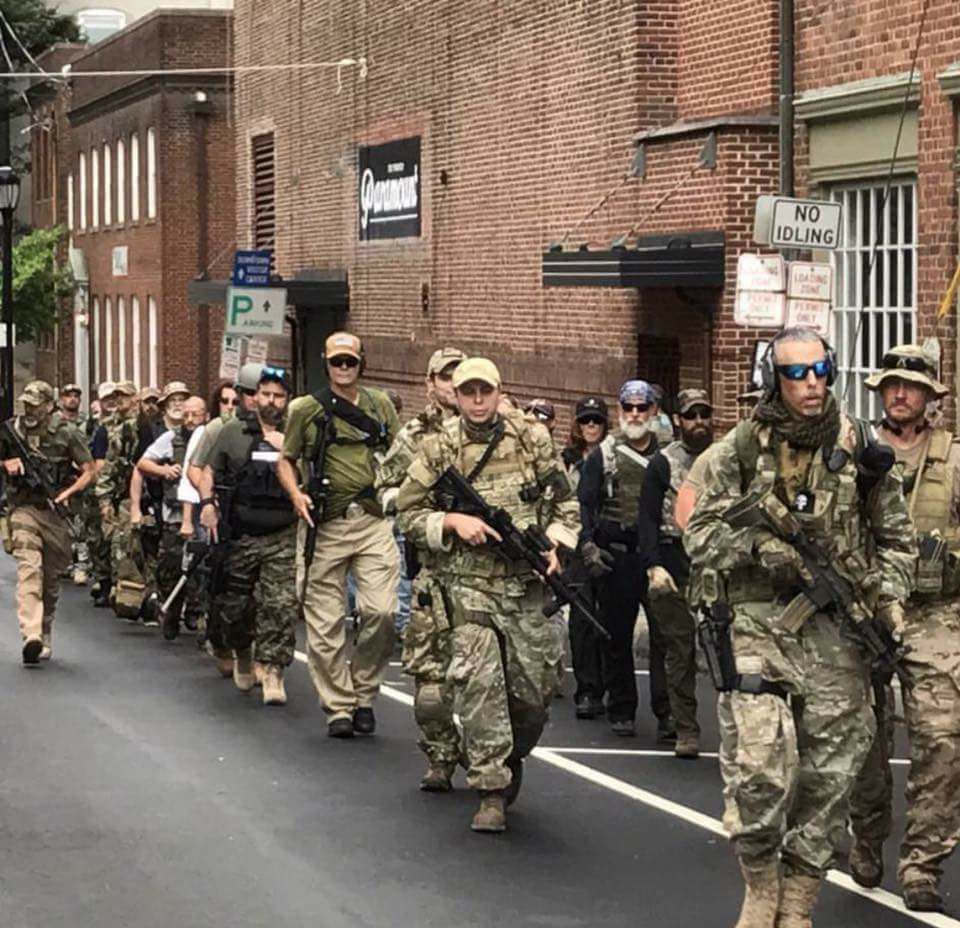
Listen we’ve been here before. Charlottesville’s own demons of Massive Resistance. Jim Crow landmarks like the side entrance to the vaunted Paramount Theater that still exist. Ask folks who know about West Main St. 1975. Walkouts at Lane High School. Charlottesville High School in the Spring of 1984 and so many other upheavals of the social order based on this idea of heritage at the intersection of race. As I mentioned at the outset the Charlottesville I knew was Black, White, University and Town. Has that changed? I’m not sure. I was really lucky to get to know people and build bridges across all of the aforementioned strata as well as deal with the ignorance of people only believing that life functioned in one way or only for a certain group of people. So I too am interested in seeing what will be the outcome of The Concert for Unity slated to begin in a few hours.
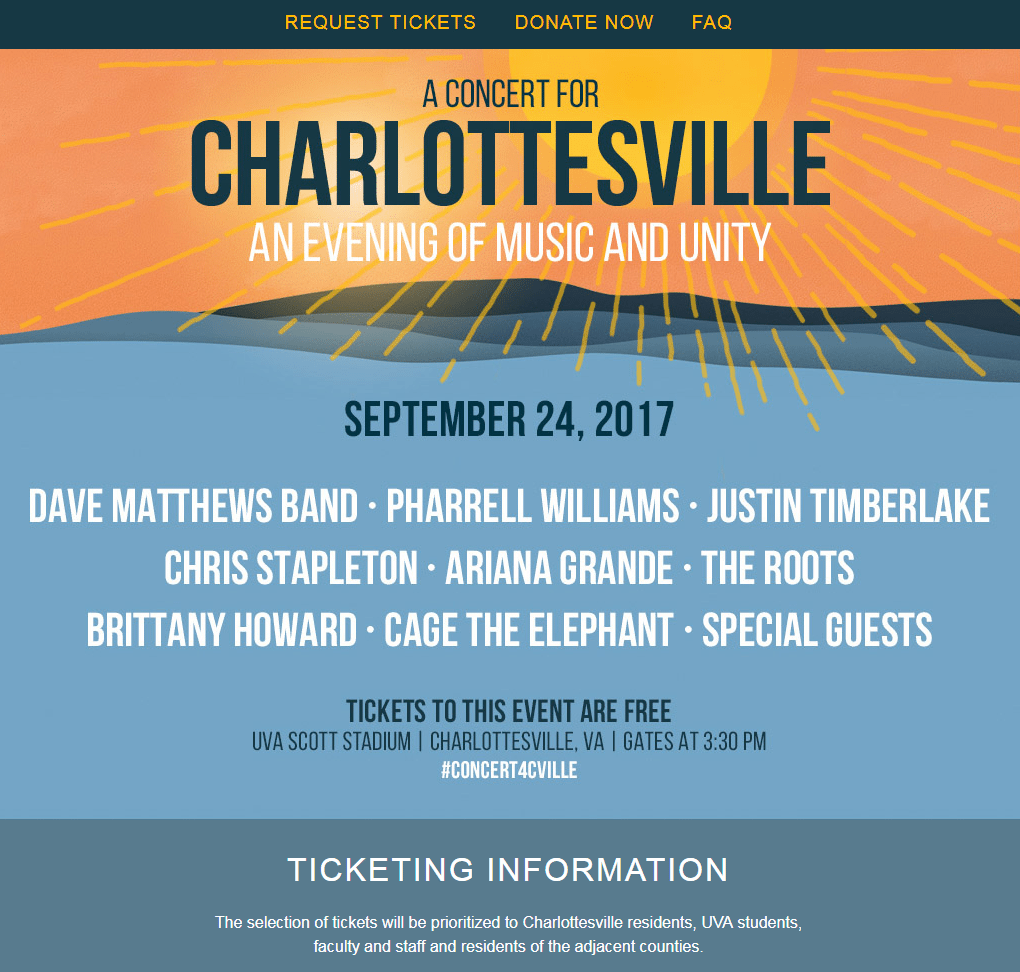
If you get a moment check out this interview with Dave Matthews and Pharrell Williams on Charlie Rose. They discuss this concert not being just a one off and how they are looking to begin a dialog. Whatever the format make sure you get some folks in there when you’re talking Charlottesville that knows the entire city, has walked all the streets and knows a wide swath of people to serve as your guide. They’re there, been fighting the good fight for many a year and will be invaluable in the quest for healing. There’s no place like home and it is my prayer that out of these ashes a new city will emerge, one that values all.
Ivan Orr is a multi-instrumentalist, composer, performer, and writer. A native of Charlottesville, Virginia Ivan was involved with the forming and nascent days of The Music Resource Center as its first Program Director. A graduate of Virginia Commonwealth University’s Department of Music, Ivan currently resides in Richmond, VA where he maintains an active performance and production schedule while serving as the Music Editor for Grown Folks Music, a position he has held since 2010.
RELATED POSTS
December 7, 2008
Group Home – Supa Star
March 12, 2012
Charles Perry Covers “Home”
September 6, 2017
A Concert For Charlottesville, Virginia
September 28, 2011
Charity Starts At Home(Album Review)
November 26, 2010

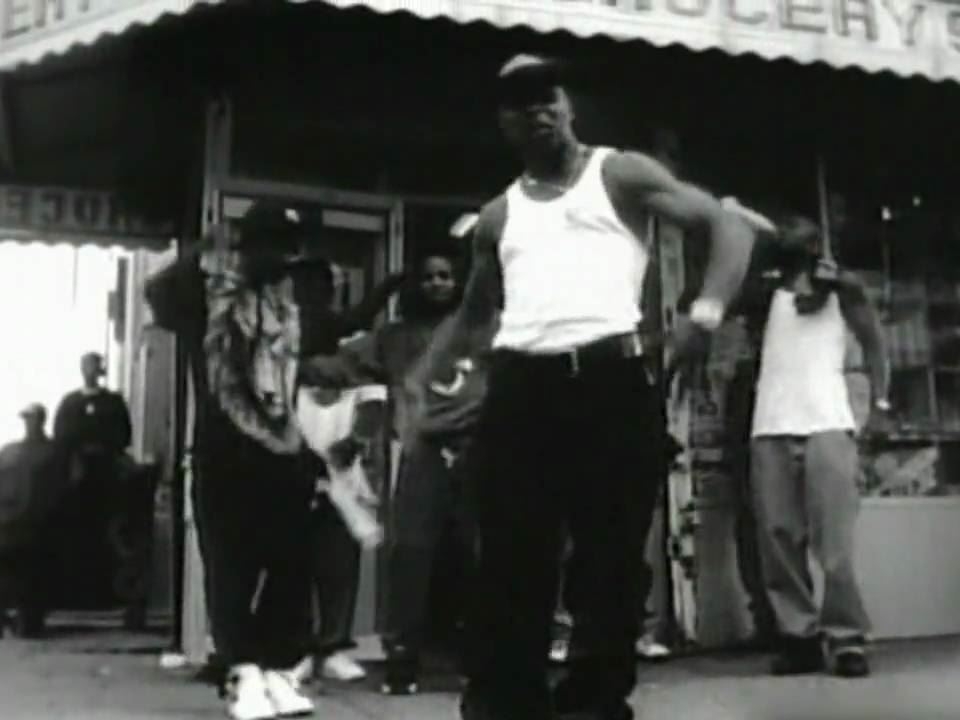
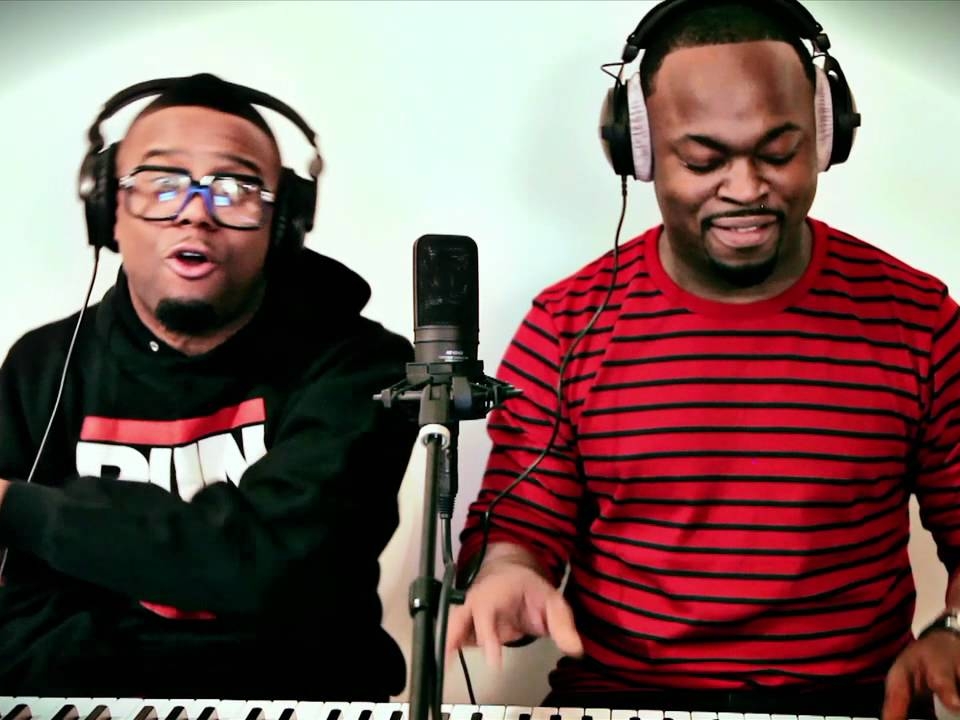
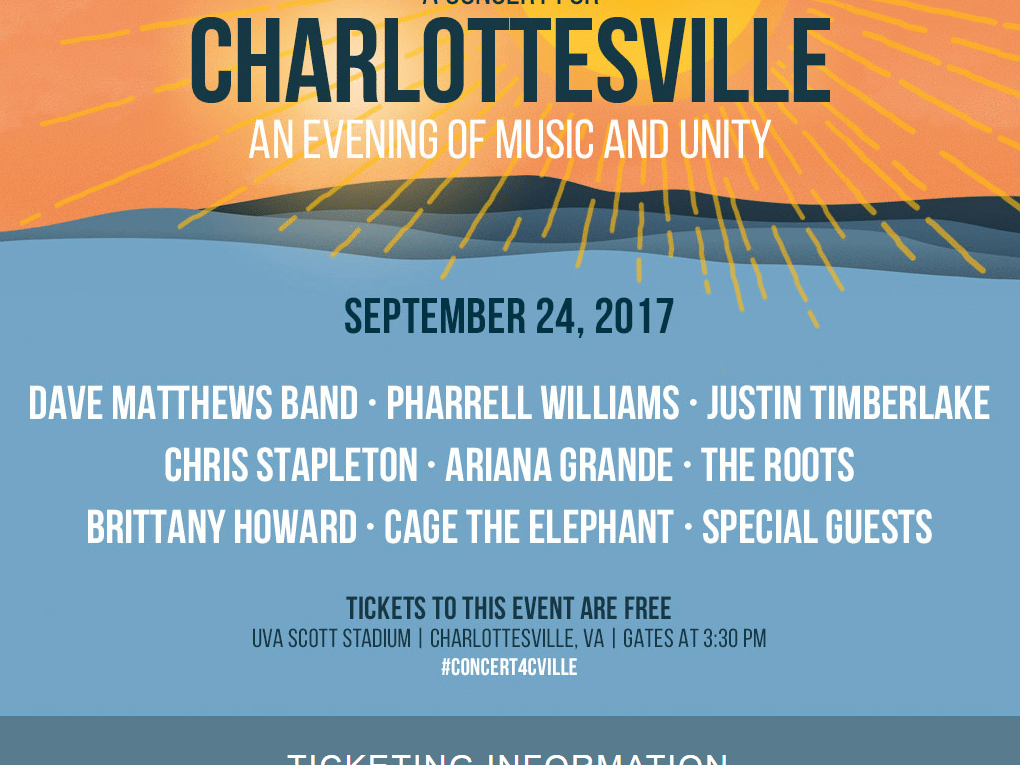
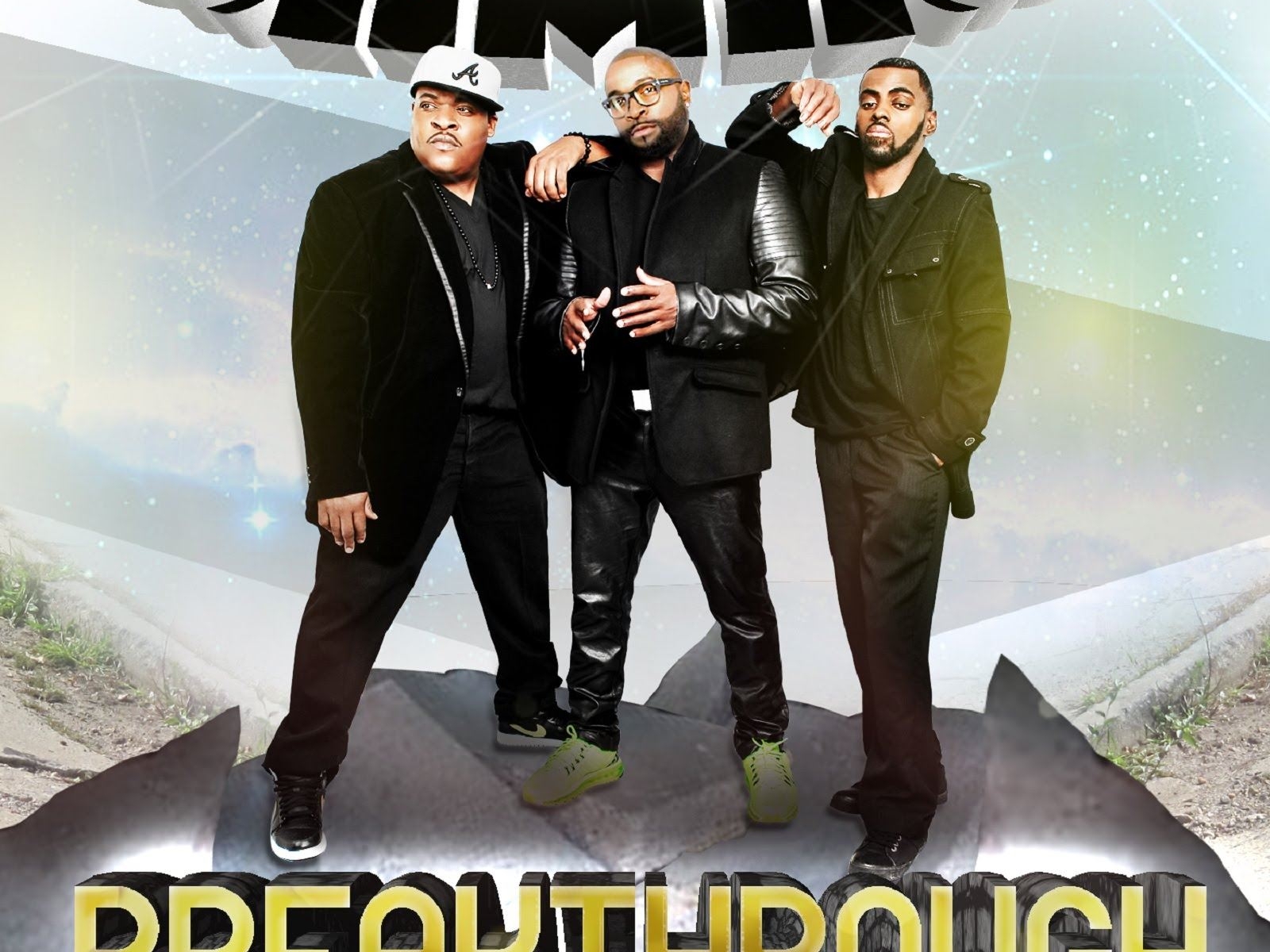

Please send me a message when that happens. Wouldn’t want to miss it.
Will do!
The image of the Militia marching under the Jim Crow landmark at the side entrance to the Paramount Theater and the fact that this landmark still exists – both physically and metaphorically – is chilling and powerful. Even more disturbing is the fact that I would not have noticed that landmark if not for your eye-opening editorial. I was so focused on the horror of the gun-toting Militia that this insidious symbol of segregation escaped my attention. I don’t feel good about this.
In reference to Aug 12th, your observation that “in order for anyone to come into your home from outside they must be invited …. who made the invitation and who allowed the terrorist behavior once inside” is profound. It speaks not only to Charlottesville, but to all of us. Without question Nazis and White Supremacists must be denounced, but your editorial has also taught me that…like the shocking image above…we must be mindful of the more subtle signs of racism standing right beside us.
Thank you so much Nikki for your insightful comments here. It really means a lot to have this type of feedback. I’m hoping at some point to assemble some friends of mine from Charlottesville to go even more in-depth with different perspectives and to further contextualize this complex issue while using music as the center of the discussion.
Don’t think I posted my reply correctly so it ended up at top of comments. 🙄
That could be on our end 🙂